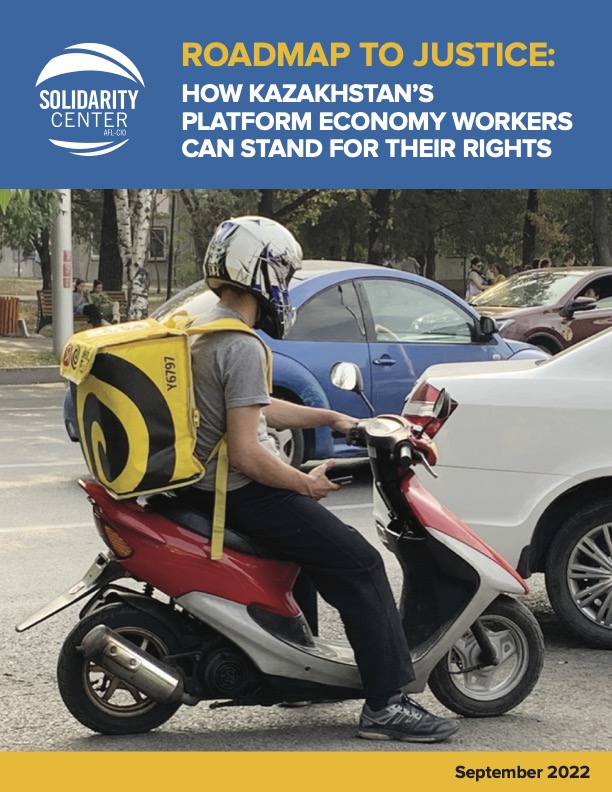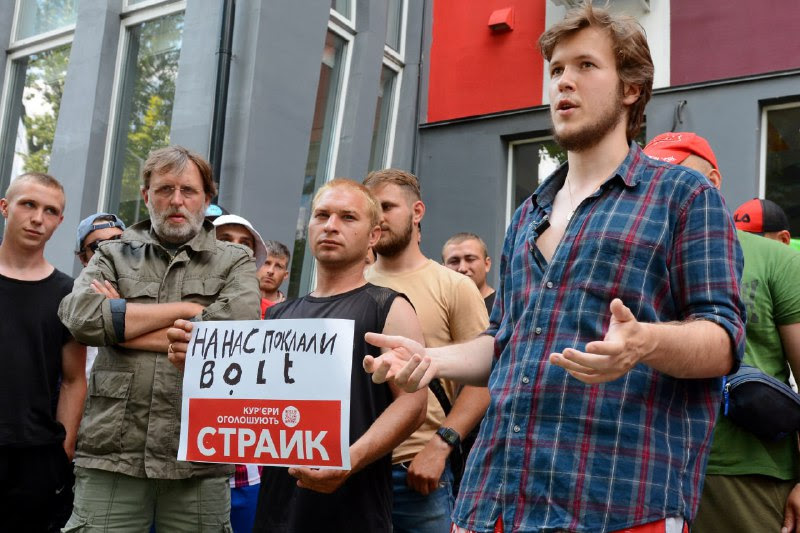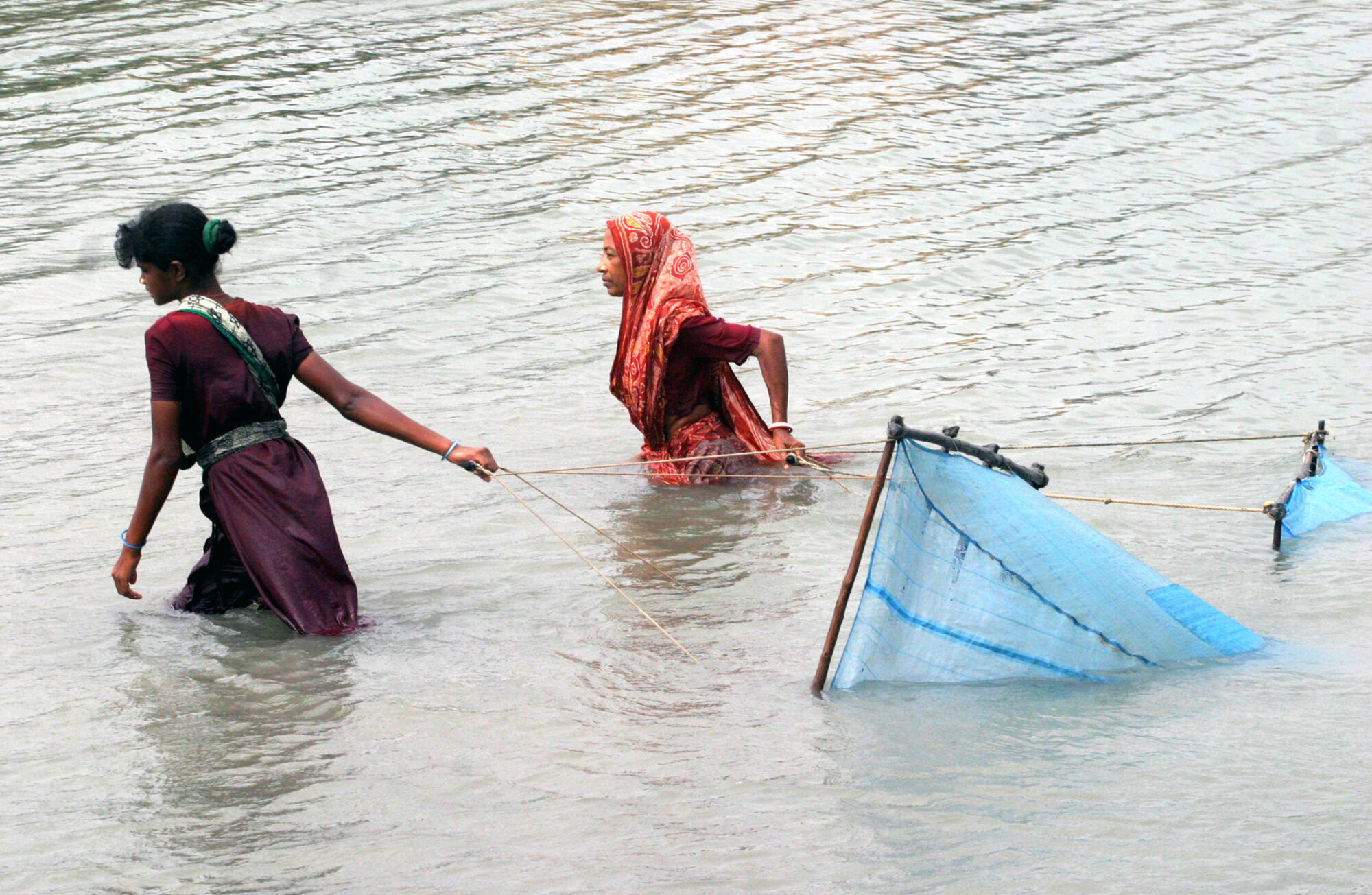Kazakhstan has the most developed digital market in the region, and digital platform companies operate in Kazakhstan’s major cities. With the sector’s growth, the vulnerability of workers in this segment has also become more apparent, especially for marginalized...

The Solidarity Center assists workers in the informal economy, such as market vendors in Zimbabwe, come together to assert their rights and raise living standards. Credit: ZCIEA
Some 2 billion people work in the informal sector as domestic workers, taxi drivers, and street vendors, many of them women workers. Informal economy work now comprises the majority of jobs in many countries and is increasing worldwide. Although informal economy workers can create up to half of a country’s gross national product, most have no access to health care, sick leave or support when they lose their jobs, and they have little power to advocate for living wages and safe and secure work.
The Solidarity Center is part of a broad-based movement in dozens of countries to help workers in the informal economy come together to assert their rights and raise living standards. For instance, three affiliates of the Central Organization of Trade Unions-Kenya (COTU-K), a Solidarity Center partner, signed agreements with informal worker associations to unionize the workers, enabling them to access to the country’s legal protections for formal-sector employees.
Find out more about informal workers gaining power by joining together in unions and worker associations in this Solidarity Center-supported publication, Informal Workers and Collective Action: A Global Perspective.
Bolt Delivery Drivers in Kyiv Demand Wages They Can Live On
Despite often heroic efforts to deliver food under war conditions, Bolt delivery drivers in Kyiv, Ukraine, have seen a 60 percent cut in wages—and they are demanding the company take immediate action to boost wages and provide vehicle maintenance support. Prohibited...
Labor Leaders, Activists: Women Workers Critical in Driving Inclusive Climate Solutions
Climate change and environmental degradation have exacerbated gender inequality and worsened existing inequities resulting from resource scarcity, conflict and climate-related shocks. Women workers—particularly those in the informal economy—bear significant burdens...
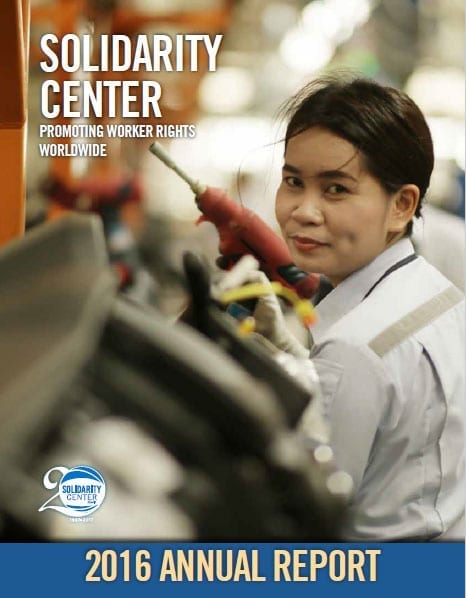
Annual Report 2016
Download here.
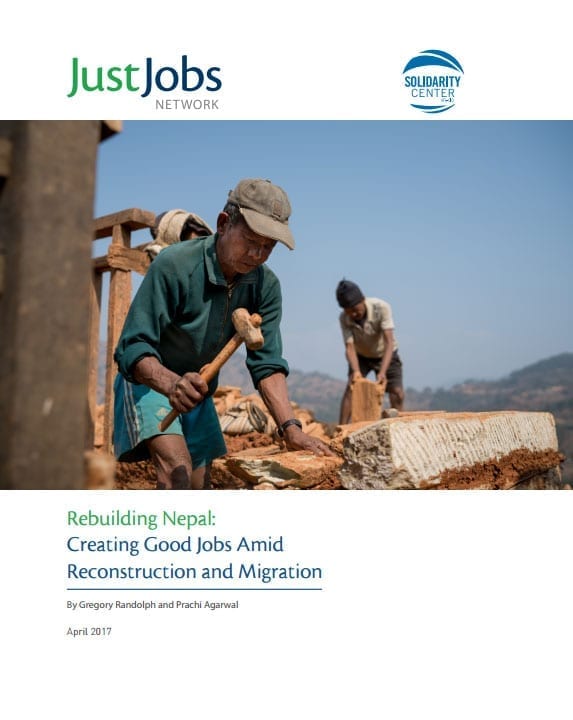
Rebuilding Nepal: Creating Good Jobs Amid Reconstruction and Migration
This JustJobs and Solidarity Center report asserts that post-earthquake Nepal is at a unique moment when it can leverage the reconstruction process to protect worker rights and ensure that migration out of the country for work is a choice, not a necessity....
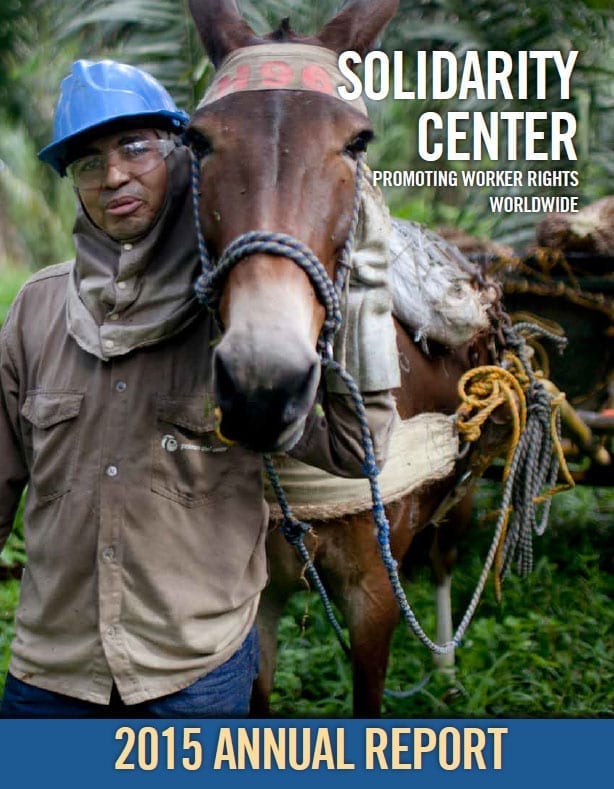
Annual Report 2015
Download here.

Workers in Post-Civil War Jaffna
Although Sri Lanka's labor code sets the minimum wage, the maximum number of work hours per day and work days per week, and establishes rules around overtime and benefits, many employers in Jaffna, the country’s northern province, are flaunting the statutes. The vast...
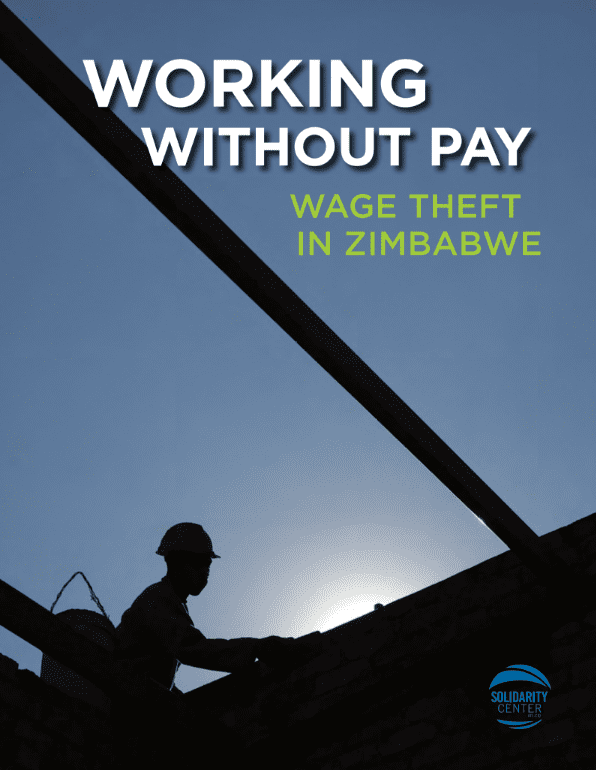
Working Without Pay: Wage Theft in Zimbabwe
Wage theft is widespread throughout the the public- and private-sectors, with Zimbabweans working months without a paycheck. Based on surveys at 442 companies, the report documents the vast scope of wage theft; outlines the responsibilities of the state under...
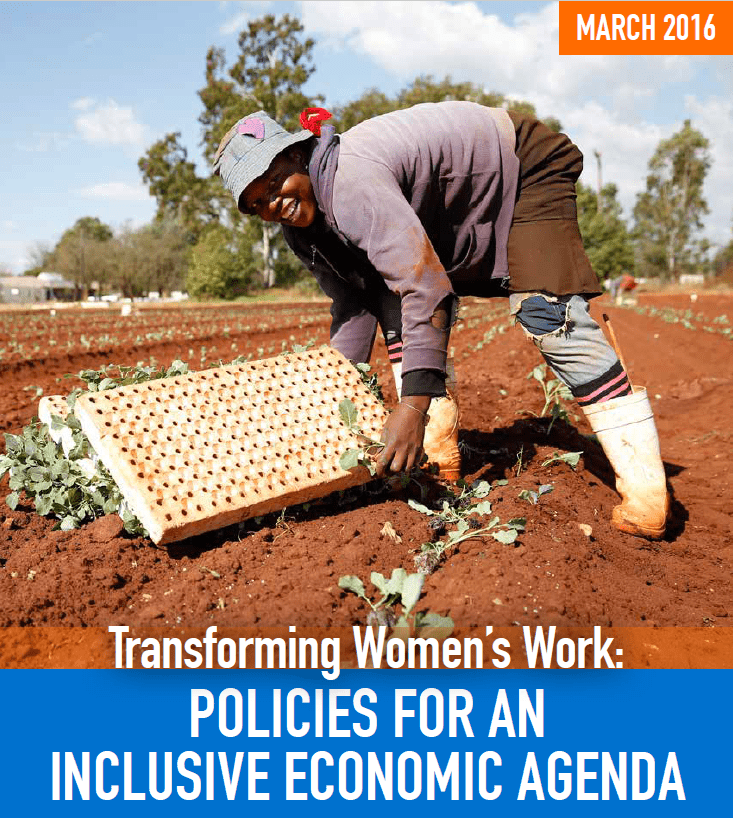
Transforming Women’s Work: Policies for an Inclusive Economic Agenda
Convening experts from the AFL-CIO, the Rutgers University Center for Women’s Global Leadership and the Solidarity Center, this report examines how to shift governments' policy priorities, create an enabling environment for social organizing and transform women’s...

